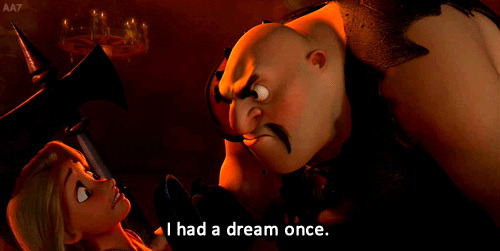Freedom and the Outlaw: Why we Root for Criminals

Last night I watched The Town, starring (and directed by) Ben Affleck. It was a great film about a gang of armed robbers who terrorize the city of Charlestown until the main character falls for one of their victims. As I said, it’s a great movie and I highly recommend it. But it got me thinking: why do we root for the criminals?
Mind you, I’m not talking about the kinds of villains we can’t help but respect even as we condemn them. The Joker has had audiences fascinated since Heath Ledger’s immortalizing performance in The Dark Knight, but that’s a different breed of fascination.
I’m talking films like Baby Driver, Pirates of the Caribbean, Gone in 60 Seconds, etc. where our hero is a criminal. And while sometimes we watch as Baby tries to escape a life he got pulled into by accident, many times we watch Jack Sparrow pilfering his weasely black guts out and we actually want him to get away with it.
What is it about criminals?
So what is it that makes characters like Jack so exhilarating? Why do we, as functioning members of society in which stealing is considered wrong, root for the outlaws? I have a few theories, but all of them come back to the same core desire: freedom.
Throughout history, despotic governments have risen and been overthrown. Women have challenged the patriarchy and demanded the right to vote. The poor have risen up against the rich. People have an innate desire for freedom that cannot be rooted out, even in the best of circumstances.
It would be irresponsible not to point out here that there are many people in the world who still find themselves at the mercy of tyranny, corruption, and evil. And I would never lessen that reality by claiming freedom is a universal experience. But even in the happiest, most developed parts of the world, there is a constant churning in the underbelly of society—a wave building to its crest because humans are not designed to accept reality; we are born to challenge it.
For this reason, the heist story is a popular choice for viewers. And while we spend a lot of time justifying the actions of our favorite criminals, there is a part of our attraction that does not rely on justification at all. It’s undeniable; we are drawn to miscreants and outlaws. Explore with me for a moment, won’t you?
Why we Root for Criminals: Because we Feel Incomplete
Living in polite society requires certain sacrifices. While some of us yearn for the time of outlaws in the wild west, the fact is most of us have signed the social contract that says we will not simply take what we want. We will work for it. We will build communities and live in peace with our neighbors.
This is especially true in capitalism where citizens are promised equal return for their grueling input. I’m obviously writing from an American perspective, but capitalism or no, most of us have had to sacrifice our dreams for the sake of practicality. And the strange part is, we treat it like a joke.

But what’s so silly about wanting to be a pop star? What is so ridiculous about the kid who wants to be a superhero, only to grow up and find out that radioactive spiders don’t come around all that often? Bruce Wayne didn’t have any superpowers, and that never stopped him. Then again, few of us are billionaires.
But my point is, why is it so ridiculous to dream of something bigger than what the world would have us settle for? We surrender dreams of grandeur in search of something more practical. Why? Because our survival depends on it.
We may sign the social contract, but that doesn’t mean we don’t crave a little anarchy
Few of us choose the careers we find ourselves in, and even in those cases when we make it into our desired fields, we did not dream of sacrificing all our time and sanity for a job that was supposed to give us value.
The sad truth is, we do not always get out of things what we put into them. Sometimes you start in the mailroom and never work your way past middle management. More often than not, that fledgling business you try to start fails. Or, like me, you spend countless hours writing manuscripts only to have door after door slammed in your face. So we look to characters who also experience the unfairness of lost or unattainable dreams, of which there are many different kinds.
The Unwilling Participant
Often times our thief did not choose a life a crime; he/she stumbled into it accidentally. In Baby Driver, Baby doesn’t want to play get-away driver to a bunch of hardened criminals. He made a mistake when hew as young that sent him into a life he doesn’t know how to get out of. Sure, he spends his weekends fleeing from the police, but at home, he’s taking care of his deaf (former) caretaker. We are drawn to this type of criminal, perhaps because we too feel as though we have been forced into a life we didn’t fully get to choose.
Baby offers us a sympathetic look at the entrapment that creeps up on us as we sacrifice the impractical dreams of our youth for what is real, for what is attainable. And with his sympathy, he offers us the fantasy that we too can escape the monotony of our lives and get back to what we wanted to do in the first place: live.
The Righteous Theif
Sometimes the criminal is hardly a criminal at all, but that doesn’t make it less exciting. Robin Hood sees the corruption in the system and seeks to steal back the prosperity of the rich that was built on the backs of the poor. And when stealing from tyrannical leaders, it doesn’t seem so wrong. In fact, we want there to be someone out there taking back the power we have lost.
Benjamin Gates in National Treasure is similarly moral, except in this case we get the fantasy of high crime without any immorality at all. Ben has to steal The Declaration of Independence to protect it, and the treasure, from those who would seek to do harm. In this way, we get to live the ultimate dream of the heist without ever having to answer the moral question because the answer is almost universal; stealing cannot be wrong when done in the pursuit of something righteous.
In both cases, we get to feel all warm and fuzzy because it’s not really stealing, is it? A person who cares for the poor cannot truly be immoral. We are willing to bend the definition of justice instead of calling for mercy because deep down we don’t think Robin is justified in crime as much as we believe no crime has been committed.
I think it goes deeper than the fantasy of the heist. I think we have an unconscious desire to justify criminal activity for the characters we like, and characters like Robin and Ben simply make it easier for us.
The Lovable Outlaw
The most interesting case of rooting for the bad guy comes in the form of the outlaw who isn’t really a moral character at all. Sometimes our hero is a criminal through and through, but it doesn’t matter. And I suspect it never mattered in the first place.
The truth is, we like the fact that Robin Hood is in pursuit of the greater good. But we don’t need him to be. We would root for him all the same even if he kept the money for himself.
Enter Jack Sparrow. He’s a far less noble thief, though he certainly has his moments. But we root for him from the beginning and it has little to do with the morality of fighting off the East India Trading Company. Norrington, in the first film at least, is not a bad guy. He believes in honor and justice. He seeks to enforce it for a government he believes in. Yet we all feel that subtle unrest that wants to see him overthrown; we want Jack to get away.
But how can we root for thieves even when their moral compass is askew? How can we as viewers justify criminal activity in stories when we would be slower to do so in real life?
Because Jack is bigger than a few quippy one-liners and the inability to walk in a straight line. In the pirate’s own words, “It’s not just a keel and hull and a deck and sails. That’s what a ship needs. But what a ship is… what the Black Pearl really is… is freedom.”
This Jack Sparrow quandary is at the center of everything I believe about the attraction to outlaws. We can spend all day trying to justify otherwise criminal action because the character in question had no choice or believed in something bigger than himself. But at the end of the day, we all just want to be free.
Why we Root for Criminals: It’s Not About Right or Wrong
My point is not that people are full of unconscious evil desires. Quite the opposite, actually. The same desire that leads us to imagine stealing the gorgeous Audi in the parking lot at the gym has led people to do extraordinary things. Because of our innate, human desire for freedom, we seek to correct injustice, to liberate the poor, and to change the face of history. So, while I think our reasoning may be less than moral in a societal sense, I believe it stems from the incorruptible desire to act without the constraint of laws, policies, and beliefs that would see any man or group imprisoned.
In short, I think we should lean into whatever complex emotions lead us to root for outlaws.
Stories allow us to experience things the real world can’t. Society would collapse if everyone were like Jack Sparrow. But that doesn’t mean we can’t espouse the idea that all men are created equal. That on some level pirates, kings, outlaws, and rule-makers are all the same. Because underneath whatever pretenses we live in, we all desire the same thing:
Freedom.



